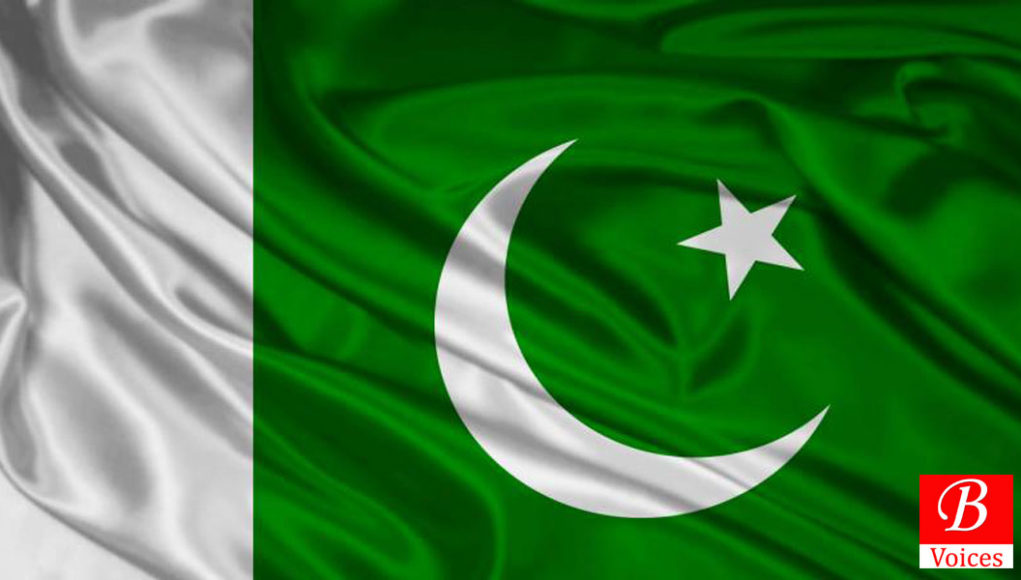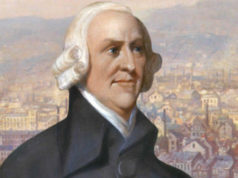Tahira Khan
European history is full of both calamities and uncertainties where Treaty of Westphalia (1648) is usually made responsible for the birth of Nation-state. Controversies have been the part and parcel of politics but when it comes to nation and nationalism one is needed to reflect upon the notion of being reasonable and logical, deeply.
Nationalism is nothing but a specified ‘state of mind’ which is no less than a faith. Common group feelings involving love for native fellows and hatred of a prevalent enemy is considered to be deeply embedded in respective nationalities. Long ago, Ibne Khuldun (1332-1406), talked about this concept and termed it as ‘Asabiyyah’.
Thus, we can say that nationalism is a determined psychological make-up which is consisting of three elements i.e., fixed geographical boundary, defined norms/values and particular political system.
Though, nation and nationalism is used interchangeably but there is wide difference between the two. Nation is inter-subjective and inherently subjective term which doesn’t need the criteria of determined territorial outlines. That’s why it is said that the term of Nation-state must be completely abandoned as there is no pure such state in the existing international system.
If we look into sub-continent scenario, it has been caught in the predicament of Pakistani and Indian nationalism along with the emergence of Two Nation theory which led to much bloodshed and communal riots. Many patriots could, still, be found puzzled about their respective nationalities even though we have managed to surpass almost seventy years of independence and prosperity.
Unfortunately, the quest for identity has greatly hampered the stable political culture which has been poisoned by irrational and emotional rhetoric on both sides. This has, then, led to the deterioration of political system and inculcation of morality in pursuit of selfish ends of few elites.
Kursheed Kamal Aziz, a Pakistani historian, took a first step towards a required rationale in order to resolve both the identity crisis and nationalism dilemma. His book, The making of Pakistan – A study in Nationalism, is considered to be one of vital strides being put forward in search of sanity.
Muslim nationalism is hinted back to the era of Muhammad Bin Qasim and Emperor Qutbuddin Aibak which is a sort of premature movement and analysis. Slave dynasty was then followed by series of Mughal emperors I.e., Babur, Humayun, Akbar, Jahangir, Shah Jahan and Aurangzeb.
The era of Muslim Nationalism which, actually, led to an Independent nation-state is said to be summarized in four periods;
1858-1905: Neutrality of Muslims
1906-1911: The Hindu-Muslim rivalry
1911-1922: Hindu and Muslim co-operated against British
1922- Onwards: Era of Nationalism
In 1857, after the infamous mutiny, Aligarh movement emerged on the surface whose sole purpose was to bring environment of co-operation between Muslims and British with the help of being neutral and educated. This was the first sensible step towards establishment of well-grounded culture among the general Muslim masses. Then, there happened partition of Bengal (1905) being followed by the initiation of Muslim entrance in politics with the creation of Muslim League (1906).
Unfortunately, the extremist leaders like Tilak and events like annulment of Bengal (1911) sow seeds of enmity between Hindus and Muslims but they joined hands in the after-math of Luck now Pact (1916) and Khilafath movement.
The historical narration in pursuit to enunciate the Pakistani nationalism doesn’t end there. After short period of Hindu-Muslim friendship, a story of Simon commission got into operation whose sole purpose was to amend the 1919 constitution. It failed miserably and gave way to the notorious Nehru Report (1928) WHICH CAME OUT TO BE FINAL DEATH BLOW TO Hindu-Muslim unity and co-existence. Historians are still confused over this blunder of Nehru especially at the time when Muslim Nationalism were grown to maturity level. Yes, Congress eventually won 1937 elections but the other side of the story suggests that it was preparing fertile land for the call of independent state of Pakistan. Allama Iqbal’s Allahabad address and elections of 1945 (Pakistan vs Akhand Baharath) are deemed to be explicit examples of the altering scene of the sub-continent politics.
We have viewed the overall historical context of events which could be contemplated for the rise of Muslim Nationalism as it is having various constituents of political, religious, cultural and psychological factors of the actual Pakistan movement.
Imperial pride of Muslims, feelings of betrayal after Khilafath movement, extra-territorial bounding in case of Turkey during WW-II, upsurge of Indian nationalism in the form of Bankim Chandra Chatterjee, widely regarded as father of Indian nationalism, literature and the problem of separate electorates; all lies in the domain of political factor.
As far as religious factors are considered it advances in Khilafath movements and Pan-Islamism whereas the cultural ones constitutes languages (Hindi-Urdu controversy), Educational organizations (Anjuman-i-Taraqqi-i-Urdu), literature, philosophy, art etc. Last but not the least, psychological reasons includes myths, symbols, fear, insecurity and pride in respective Heroes.
That’s why it is completely baseless by saying that British created political theory of divide and rule along with Hindu-Muslim rift as they neither imposed separate electorates nor crafted the minority problem.
Besides, K. K. Aziz also attempted to respond the hotly contested questions like that of status of Indian Muslims and their elaboration with respect to Two-Nation theory, the alternative schemes for Pakistan and their feasibility, the support of Muslims for independent land despite being a part of Hindu dominant provinces and the complexities revolving around the inescapable reality i.e., Pakistan. All have been answered thoroughly under the pretext of social, economic, political, religious and psychological realms.
To conclude, Obviously, creation of Pakistan was not based on communal lines but nationalism which took birth in the absence of segmental autonomy, grand coalition, proportionality in appointment and a mutual veto. Consociational democracy was the need of hour and still it is; therefore, both sides must view this perspective in order to be developed and secular nations. And, for this no one is needed to be indulged in the religious and sectarian violence.
Writer is a team member of Balochistan Voices and a Student of BS (Hons) Political Science in University of the Punjab, Lahore. She hails from Loralai District. Click here to read previous articles written by the author.
If everyone who reads and likes our reporting, helps to financially support it, our future would be much more secure and sustainable. Click here to support.
Disclaimer: Views expressed in this article are those of the author and Balochistan Voices not necessarily agrees with them.
Share your comments!








